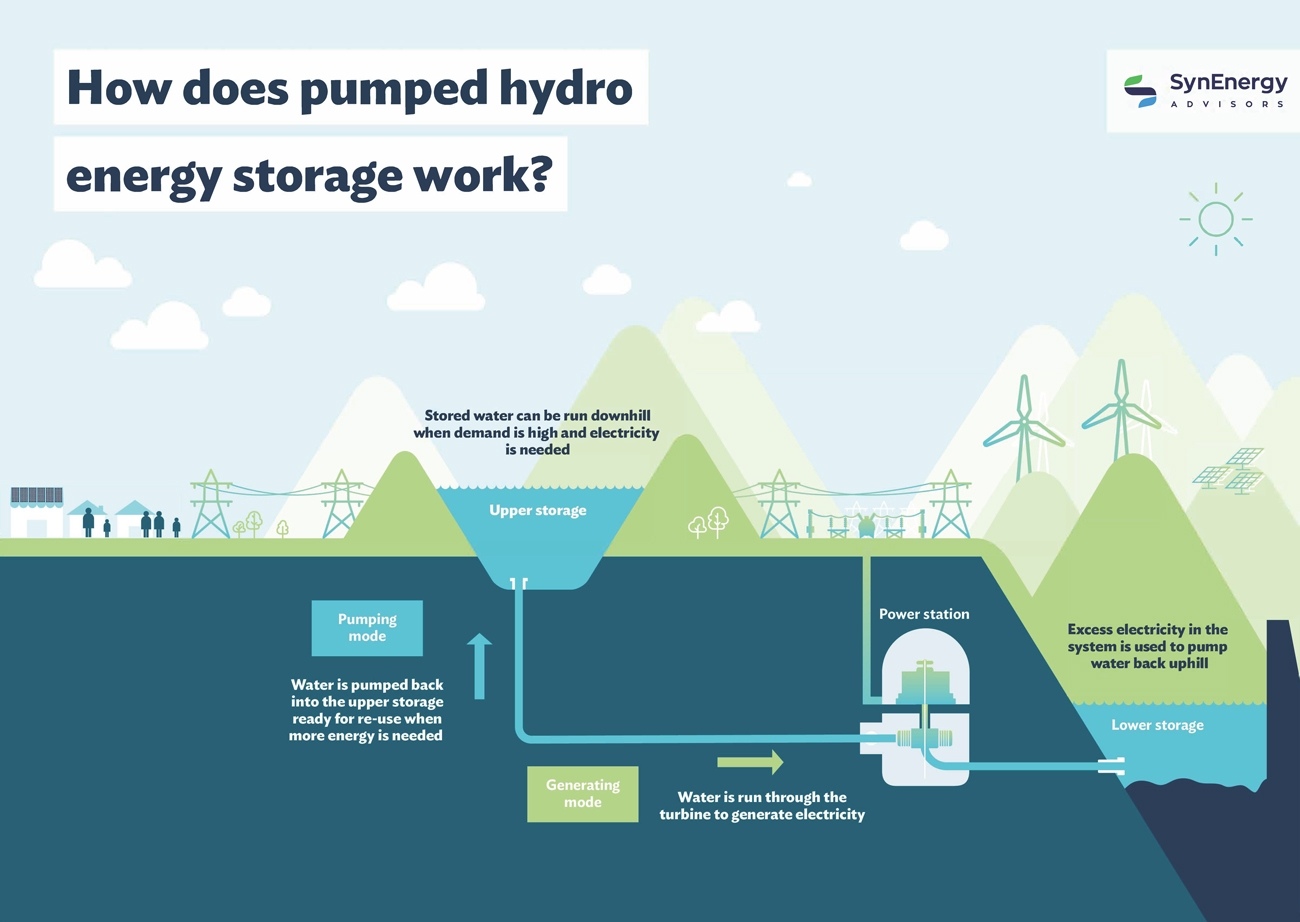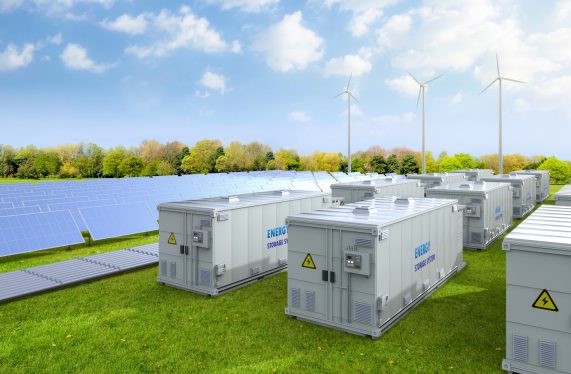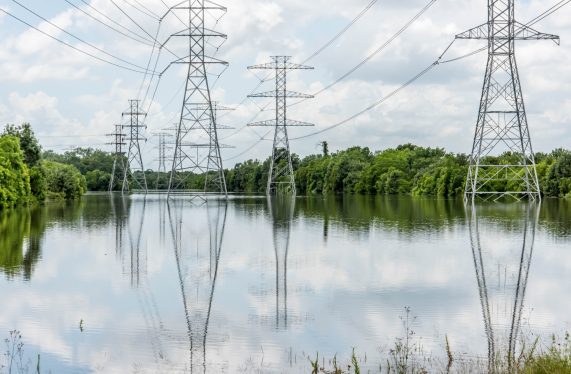Hydro Pumped Storage (HPS) systems are the unsung heroes of the energy world, playing a vital role in providing grid reliability and supporting the integration of renewable energy sources.
With this article we will delve into how these systems work and the indispensable benefits they offer to an electrical grid.
Hydro Pumped Storage is, in essence, a type of large-scale rechargeable battery.
However, instead of storing energy in chemical form, as traditional batteries do, HPS systems store energy in the form of gravitational potential energy.
The functioning of a Hydro Pumped Storage system is remarkably simple yet ingenious.

An HPS system typically consists of two water reservoirs located at different heights.
During periods of low energy demand (typically at night), excess electricity from the grid is used to pump water from the lower reservoir to the upper one.
This process stores energy by increasing the gravitational potential energy of the water.
When the grid needs extra power, particularly during periods of high demand, the stored water is released from the upper reservoir to the lower one.
As the water flows downhill, it drives turbines connected to generators, which convert the kinetic energy of the falling water back into electrical energy.
The cycle of pumping and generating can be repeated as needed, providing a flexible and efficient means of energy storage and release.
It's a tried-and-true system, with the first HPS facilities dating back to the 1890s, yet its relevance has only increased in the modern energy landscape.
So, how does Hydro Pumped Storage benefit an electrical grid?
1. Balancing Supply and Demand
One of the key challenges for grid operators is ensuring that electricity supply always matches demand.
HPS systems can quickly ramp up power output when demand peaks, helping to maintain this crucial balance.
2. Integrating Renewable Energy
With their intermittent power production, renewable energy sources like wind and solar introduce variability into the grid.
HPS systems can absorb excess power during periods of high renewable output and release it when renewable production dips, effectively smoothing out the supply of renewable energy.
3. Improving Grid Stability and Reliability
HPS systems can respond rapidly to power shortages or other grid disturbances, providing an important buffer to maintain grid stability.
This rapid response capability is especially vital in preventing or mitigating power outages.
4. Cost-Effective Energy Storage
HPS systems are one of the most cost-effective large-scale energy storage options currently available.
They have long lifespans, relatively low operating costs, and can store massive amounts of energy.
5. Promoting Decarbonization
By facilitating the integration of renewable energy, HPS systems can help reduce reliance on fossil fuel-based power plants, contributing to the decarbonization of the energy sector.
Despite these benefits, the potential of Hydro Pumped Storage is far from fully realized.
Barriers such as high upfront investment costs and regulatory challenges have hampered the growth of HPS plants.
However, with growing recognition of its value in a renewable-dominated grid, several entities, both private and governmental, are moving towards implementing Hydro Pumped Storage plants at a swift pace.
Synenergy Advisors, when it comes to the development and implementation of Hydro Pumped Storage plants, is actively contributing to the timely progress of the projects by providing electrical interconnection services.
See how we contributed to the development of hydro pumped storage plants in Amfilochia.
In conclusion, Hydro Pumped Storage systems represent an elegant solution to some of the most pressing challenges of modern power grids.
As we continue our transition towards renewable energy, these systems' importance in ensuring a reliable, stable, and sustainable electricity supply will only continue to grow.
It's high time we give this unsung hero of the energy world the attention – and investment – it deserves.



